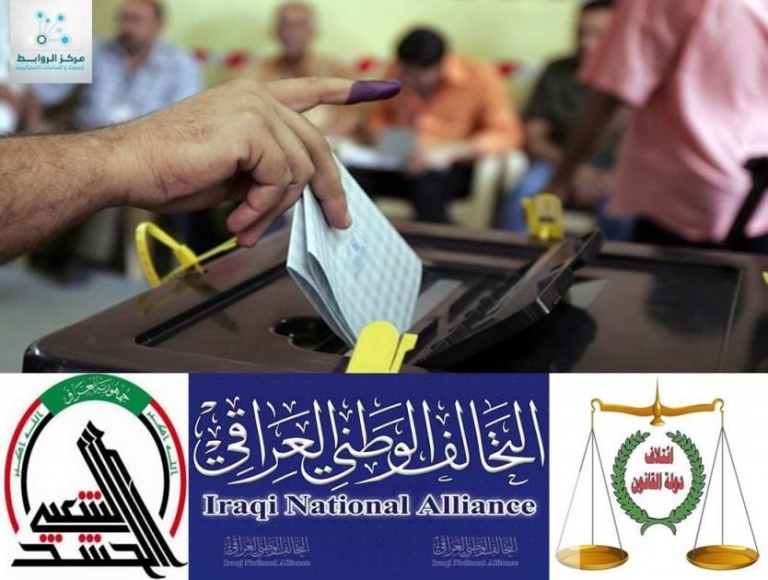The pace of political events in Iraq is accelerating, as the activities and movements of political blocs and parties began to prepare for the upcoming elections scheduled for mid-May this year, but it is worth to be noted that the process of forming blocs and electoral lists is supported by regional parties known for their relationship with armed factions inside Iraq. In particular, we refer to the political list, which consists of many military formations attributed to the popular crowd leaders who have participated in countering terrorism and its tools over the past three years, which witnessed military conflicts between the security forces and elements of ISIS in all areas that have been controlled by the organization.
The main confrontation sought by the leaders of these formations is to give a clear picture of their goals and perceptions of the next stage of political life in Iraq. They see that after they were able to confront terrorism they have a political maturity in the management of state affairs and control of political, economic and security decisions and the rush towards achieving their ambitions to strengthen their role in Iraqi society and extend their political influence and achieve their goals in the continuity of their influence and presence in the field.
Among these objectives and the basic contents of the main motives sought by these military formations of its union in the electoral list include:
1. Some of the battalions of popular crowd and their leaders who have faced terrorism and its tools see that they can continue their work and effort in political building and running the rule of governance in Iraq after the battalions have established the criteria and objectives of the field that led to the return of the state’s domination and spread its influence over all the areas occupied by ISIS three years ago . This is the view that it is better to lead the country in the future and the right to preserve the gains and military achievements, which they see as achieved by the sacrifices of the popular crowd Brigades and its bodies and fighting.
2. In order to achieve the political goal with the participation of some leaders of the popular crowd in the upcoming elections, many of them left work or resign from their combat and tactical tasks to devote to achieve their political ambitions and taking into account the directives of the Prime Minister not to allow the participation of any bloc or political party in Iraq in the next elections if it has military fighting wings.
3. Reinforcing the leading role in directing popular crowd bodies and their constituencies from those who wish to engage in the political process and participate in the formation of unified electoral lists, including all military and field commanders of the popular crowd , and thus be able to form a strategic depth and field on the ground based on their fighters in their military formations and based on the sacrifices they have made on the ground and their adoption as a driving force for achieving electoral superiority.
4. The leaders of these formations try to adopt the basis in forming their political blocs and electoral lists on a criterion that is not sectarian or regional. This refers to the participation of some leaders of the Sunni Arab tribal masses with whom they fought with the security forces or popular crowd groups in the areas where there were fighters and leaders of ISIS.
5. Because of the field connection that links the leaders of these military formations with the Iranian leaders and officers, who have worked as field advisers to them and provided them with all military, tactical and intelligence facilities in carrying out many duties in all areas of fighting against Da’ash in Iraq, the electoral lists of these formations will have the support and political backing of the Iranian regime for the promotion of its continued effectiveness and role.
6. The early preparation of these blocs and political lists is a clear field competition with large political poles represented by Abadi, who seeks a second term and with an international and Arab support clearly defined and the presence of rival leaders in the main parties, including the Dawa Party, which explained the reality of its objectives and aspirations of leadership to take Maliki to another third term . This competition between all these forces will be reflected on the nature of political life in Iraq and the continued relationship between the parties and other political blocs belonging to the National Alliance and specifically the relationship with the state of law coalition where Prime Minister Haider Abadi is still one of its leaders.
This field reading and the political vision of the events that are accelerating in Iraq make it possible to look at the future of the upcoming political alliances that will lead to divisions and differences aimed at hegemony and control of the Iraqi political decision for the next 4 years and the formation of new political parties. Their leaders were the main pillars in their previous formations.
And here we refer to the possibility of Abadi to be freed from the dominance of the Dawa Party and the influence of the state of law coalition in order to form a new political formation supported by blocs and other political parties for a second term, or will we see Maliki’s departure from the next political life due to the decline of his influence and lack of political alliances?
Iraqi Studies Unit
Rawabet Center for Research and Strategic Studies

